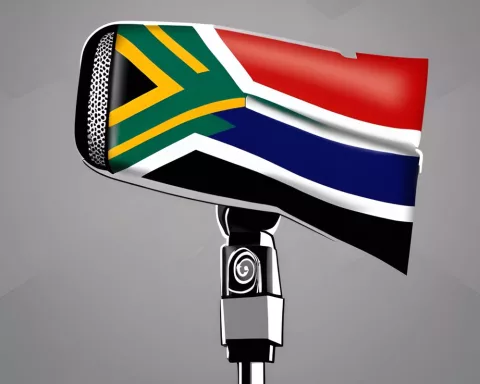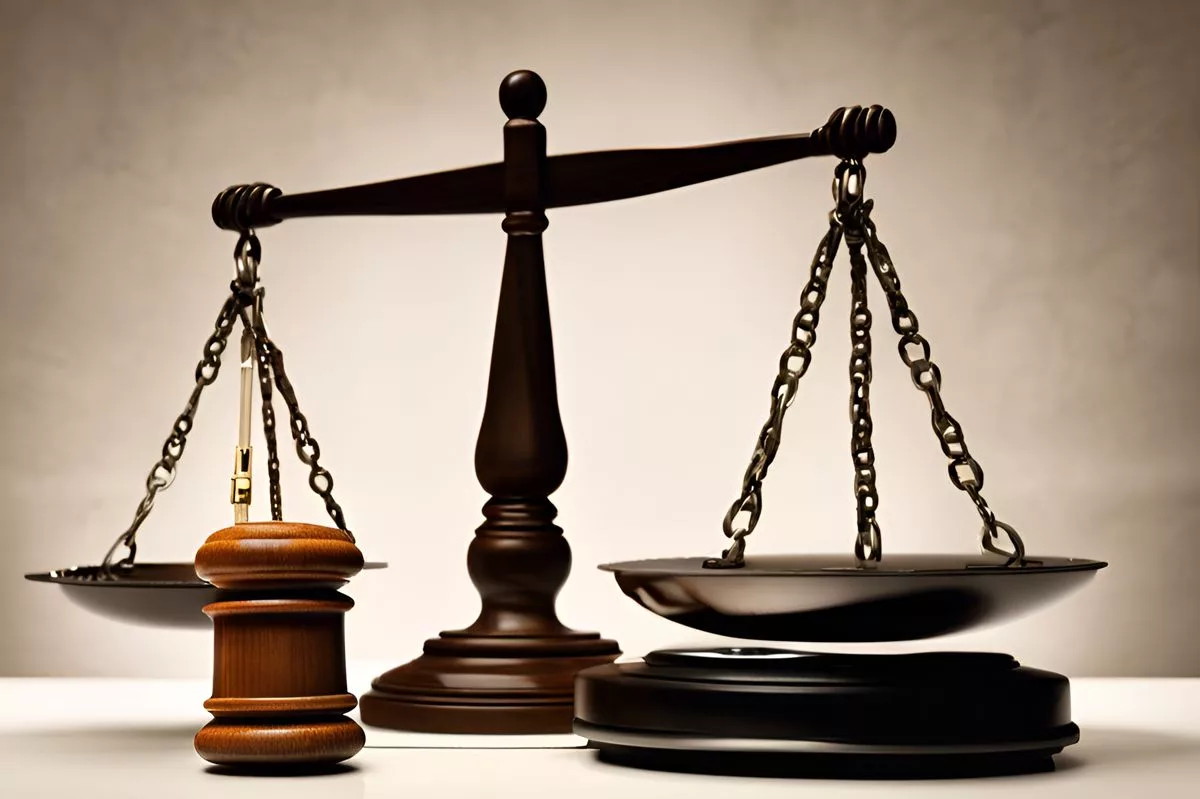South Africa’s parliament witnessed a thriving political landscape this week with the budget speech, judicial reports, policy dialogues, committee efforts, technological advancements, and international relations. Approximately 50 committee meetings were held, contributing to the strength of South African democracy. The week was marked by significant public involvement in the legislative process and digital transformation, and international relations were also in focus as the Request for the Approval of the World Trade Organisation Fisheries Subsidies Agreement was reviewed.
What happened in South Africa’s parliament this week?
This week in South Africa’s parliament featured the budget speech, judicial reports, policy dialogues, committee efforts, technological advancements, and international relations. With approximately 50 committee meetings and public hearings, each event contributed to the thriving political landscape and the strength of South African democracy.
The Thriving Political Landscape: Unveiling the Weekly Activities
South Africa’s parliamentary proceedings, the lifeblood of its democracy, throb with the energy of political dialogues, policy arguments, and a relentless pursuit for an equitable society. This week was no exception, showcasing a story rich with crucial turning points and substantial growth.
The highlight of the week was the 2024 Budget Speech, deserving of every ounce of attention it received. Enoch Godongwana, the Minister of Finance, was to present the landmark address in the National Assembly at the Cape Town City Hall. This budget address is more than a fiscal outlook; it stands as a pivotal point in the South African political saga, representing the government’s financial goals, policy objectives, and a roadmap for the country’s economic path.
A fundamental element of the Budget Speech was the presentation of the Appropriation Bill and the proposition of the Division of Revenue Bill, both of which are true representations of the democratic processes. However, the narrative of the week had more layers than meets the eye; it was filled with a range of critical proceedings that played equally important roles in molding the nation’s democratic foundation.
Pivotal Judicial and Policy Developments
Within the judicial arena, the House was prepared to discuss the Portfolio Committee on Justice and Correctional Services‘ reports suggesting the dismissal of Judges John Hlophe and Nkola Motata from office. This was under the guidance of section 177(1) of the Constitution, demonstrating the commitment to the principles of accountability and rule of law, even among the judiciary’s highest ranks.
Setting the groundwork for vital policy dialogues were reports on multiple bills, such as the Revenue Laws Amendment Bill, the Plant Health (Phytosanitary) Bill, and the Deeds Registries Amendment Bill. These legislative efforts, in alignment with the financial focus of the Budget Speech, aimed to address a variety of issues ranging from finance to agriculture and land reforms.
The week was also marked by significant public involvement in the legislative process. Approximately 50 committee meetings from both Houses were planned to conduct public hearings on bills and supervise service delivery issues. A noteworthy case was the Ad Hoc Committee on the General Intelligence Laws Amendment Bill concluding its public hearings in Mpumalanga.
Committee Efforts and Technological Advancements
The narrative of the week’s events wouldn’t be complete without recognizing the relentless work of individual committees. From the Portfolio Committee on Home Affairs’ discussions on the Electoral Matters Amendment Bill to the Portfolio Committee on Basic Education’s presentation of its Strategic Plan, each committee’s contribution provided a distinct beat to the rhythm of our democracy.
The week also offered a peek into the realm of digital transformation. The Department of Human Settlements and State Information Technology Agency (SITA) briefed the Portfolio Committee on Human Settlements about the digitization progress of the Beneficiary List. This signifies a merging of traditional legislative processes with the advancements of modern technology, an essential move for a sturdy, future-proof democracy.
Finally, it’s essential to highlight the role of international relations within the week’s events. The Request for the Approval of the World Trade Organisation (WTO) Fisheries Subsidies Agreement, under section 231(2) of the Constitution, was up for review. This illustrates how the national legislative process is inherently connected to global dynamics, outlining South Africa’s part on the world stage.
In summary, the week’s events in parliament resembled an intricately woven tapestry, with threads of policy debates, legislative amendments, fiscal plans, and international relations intertwining to form a lively and dynamic depiction of South African democracy. As we look forward to another week filled with vigorous debates and enlightening discussions, let’s remember that every political conversation, policy argument, and legislative decision contributes a unique strand to the tapestry, showcasing the strength and resilience of our democracy.
1. What was the highlight of South Africa’s parliamentary proceedings this week?
The highlight of South Africa’s parliamentary proceedings this week was the 2024 Budget Speech, which was presented by the Minister of Finance in the National Assembly at the Cape Town City Hall. This speech is a pivotal point in the South African political saga, representing the government’s financial goals, policy objectives, and a roadmap for the country’s economic path.
2. What were the pivotal judicial and policy developments in South Africa’s parliament this week?
This week in South Africa’s parliament, the House discussed the Portfolio Committee on Justice and Correctional Services’ reports suggesting the dismissal of Judges John Hlophe and Nkola Motata from office. The House also set the groundwork for vital policy dialogues with reports on multiple bills, such as the Revenue Laws Amendment Bill, the Plant Health (Phytosanitary) Bill, and the Deeds Registries Amendment Bill.
3. How was public involvement incorporated into the legislative process this week in South Africa’s parliament?
Approximately 50 committee meetings from both Houses were planned to conduct public hearings on bills and supervise service delivery issues. A noteworthy case was the Ad Hoc Committee on the General Intelligence Laws Amendment Bill concluding its public hearings in Mpumalanga.
4. How did committee efforts and technological advancements contribute to South Africa’s parliamentary proceedings this week?
From the Portfolio Committee on Home Affairs’ discussions on the Electoral Matters Amendment Bill to the Portfolio Committee on Basic Education’s presentation of its Strategic Plan, each committee’s contribution provided a distinct beat to the rhythm of South African democracy. Additionally, the Department of Human Settlements and State Information Technology Agency briefed the Portfolio Committee on Human Settlements about the digitization progress of the Beneficiary List, signifying a merging of traditional legislative processes with the advancements of modern technology.
5. What was the role of international relations in South Africa’s parliamentary proceedings this week?
The Request for the Approval of the World Trade Organisation (WTO) Fisheries Subsidies Agreement, under section 231(2) of the Constitution, was up for review. This illustrates how the national legislative process is inherently connected to global dynamics, outlining South Africa’s part on the world stage.
6. What was the significance of approximately 50 committee meetings held this week in South Africa’s parliament?
Approximately 50 committee meetings were held this week in South Africa’s parliament, contributing to the strength of South African democracy. Each event, from policy debates to legislative amendments, provided a unique strand to the tapestry of South African democracy, showcasing its strength and resilience.












